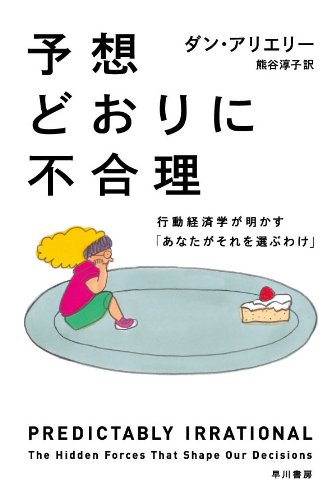- Published on
You are a slave to comparison. ~The trap of "relativity" that distorts annual income, happiness, love, everything~
Source: Dan Ariely, "Absolutely as Imaginable" (Hayakawa Publishing)
Roughly speaking
- We don't have an absolute "value measuring instrument" within ourselves. Therefore, everything from annual income to attractiveness is always judged by comparing it with something (relativity).
- As the Economist magazine's subscription plan experiment shows, one cleverly set up "decoy" option leads us to easily get our intentions towards more expensive directions.
- The only way to escape this curse of comparison is to consciously control the "circle" you are comparing and compare it to your "past selves" rather than others.
Introduction: Which salary do you choose?
Harvard students were asked this question: Which job should I choose?
- A: Your annual salary is 25,000.
- B: Your annual salary is 200,000.
If prices are the same, then rationally, everyone would choose B. The absolute amount is twice as high for B. But surprisingly, about half of the students chose A. They prioritized the relative satisfaction of "being superior to others" over absolute wealth.
This is the true nature of the most fundamental power that Dan Ariely presents at the beginning of "Expectedly Absurdly" - relativity - the most fundamental force that governs human decision-making. We don't know what we really want. However, they are sad creatures that can only measure their value by checking their position compared to others.
The Economist Magazine's Skilled Trap
Marketers should not overlook this power of relativity. The example of the Economist subscription plan that Ariely presented is far too well known.
[Three Choices presented]
- Subscribe to the digital version only: $59
- Printed version only: $125
- Subscribe to the set of digital and printed version: $125
Option 2's "printed version only" is clearly inferior to Option 3's "set subscription". It looks like a meaningless option that no one can choose. When Ariely asked 100 MIT students, as expected, 16 people chose 1 (digital version), 84 people chose 3 (set), and 0 people chose 2 (printed version only).
So, what happens if you removal of this pointless option 2 and ask another student again?
[Two Choices presented]
- Subscribe to the digital version only: $59
- Subscribe to the set of digital and printed version: $125
The result was reversed. This time, 68 people chose 1 (digital version), and 32 people chose 3 (set).
Option 2, "printed version only," was a "decoy" that no one would choose. However, it served as an extremely powerful comparison to make "set subscriptions" look very affordable. We were led straight into this "decoy" and moved us towards a more expensive option.
Why can't we escape "comparison"?
Our brains are inherently lazy. Evaluating the absolute value of things consumes a great deal of energy. However, comparing A and B is much easier. We always choose the easy path.
The problem is that this comparison makes us unhappy. Comparison of pay creates jealousy, while comparisons with other people's "sparkling lives" on social media erode self-esteem. We will always compare ourselves to people a little better than us, suffering from an everlasting thirst.
[Improvement Proposal] Control the "Language" of comparison
Ariely says it's impossible to stop comparing itself. However, we suggest that the "circle" of comparison can be consciously controlled**.
From a larger ring to a smaller ring: Comparing yourself to a company CEO or an influencer on social media will only make you feel unhappy. Stop making such meaningless comparisons and look to more accessible communities within your reach. If it's difficult to compare with colleagues at work, find joy in hobby circles and local friendships.
Compare with "past selves" rather than others: The healthiest comparisons are not others, but the ones I was yesterday and the ones I was a year ago. By having an absolute indicator of your own growth that will not be taken away by anyone, you can be free from the trap of relativity.
Even if you buy a luxury car, happiness will disappear if your neighbor buys a better car. However, the fact that I read more books and acquired new skills than last year gives me a solid sense of satisfaction that doesn't require any comparisons with anyone.
Conclusion: Are you living by your yardstick?
Relativity is like an OS built into our brains. You cannot uninstall it. However, we can choose what software (values) will run on it.
Stop measuring your own value using someone else's yardstick and have your own yardstick. It's easier said than done, and it's difficult to do. But that effort is the only way to free us from the curse of comparison and lead us to true happiness.
[Actions to encourage action] This concept of "relativity" is the most important idea that forms the basis for all irrational actions, spoken in "Anti-Astonished Absurd." Pick up this book and discover how this powerful mental habit plays out in other parts of your life (for example, choosing a romantic partner). That insight may completely change the way you see the world.

